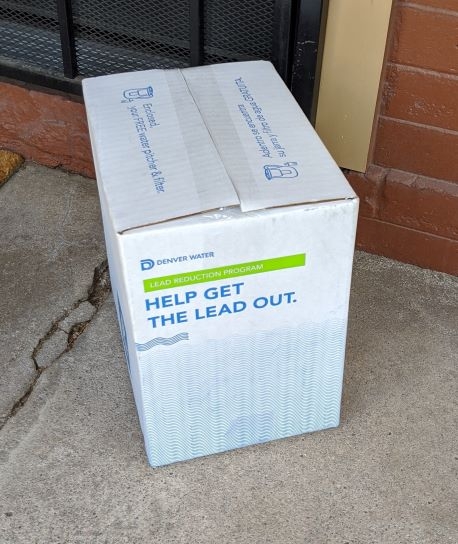Denver Water began allowing homes to use galvanized steel and copper pipes instead of lead in 1951. In 1971, Denver banned lead pipes in customer-owned service lines and by 1986 Congress had banned lead pipes across the country, so it may be surprising that somewhere between 64,000 and 84,000 homes in Denver are receiving help for lead in their water, including many in North Denver.

While the city’s pipes that bring water to individual properties are lead-free, older pipes that connect a privately owned home or other building to the city’s water supply may be lead-lined.
“There is no lead in the water Denver Water delivers to customers,” said Jose Salas, a spokesperson for Denver Water. Salas explained that many older homes still have their original service lines and owners never replaced them, so the city is offering to do it instead. While replacements were often done while conducting other service work, Denver Water is now proactively replacing service lines. They expect replacing all lead service lines will take up to 15 years, so in the meantime, Denver Water is giving away Brita pitchers for residents to use.
The lead reduction program will cost an estimated $500 million dollars over the decade and half, but Salas said customers won’t see any additional costs — the program is paid for with existing tap fees, hydroelectric power generation proceeds, and similar funds.
Newer homes built after older homes were demolished, often called “scrapes,” are less likely to have lead service pipes according to Salas, as builders are required to replace the lead lines during construction. Individuals should consult with their builder to ensure the lines were actually replaced, however.
Denver Water has also adjusted the pH level of the water from approximately 7.8 to 8.8 with an “additive that protects the pipes from corroding,” according to Salas. “Customers won’t see any difference in the taste or water.” He also said the change is positive for the overall water supply and minimizes the impact on downstream users.
Gardeners may find the change in pH requires them to adapt slightly. The pH (an abbreviation for pondus Hydrongenii) scales measures acidity vs alkalinity. 7 is considered neutral. High pH levels in the water can impact a plant’s ability to consume nutrients and gardeners may want to discuss additives or other options with their local garden center.
Denver Water has created an interactive map as part of their website where residents can look up their specific address to see if it is likely they have lead pipes. The map and other information is available at https://www.denverwater.org/your-water/water-quality/lead.
UPDATE: Several readers wrote in asking whether the city has a reimbursement program for people who want to replace their own lines sooner. Jose Salas, the spokesperson for Denver Water who was interviewed for this story, said they do have such a program: https://www.denverwater.org/your-water/water-quality/lead/lead-service-line-reimbursement

I live at 5086 Grant St. 80216. I have brown water come out if my bath tub focet every time I turn it on. What can that be?
We are having the old water pipes in our home replaced with copper pipes in July. Will Denver Water replace the service line and tap for us or reimburse the plumber we hire for this project if we pay for the inside work?
when can we expect to know?
Several people reached out with that question actually. They do have a reimbursement program:
https://www.denverwater.org/your-water/water-quality/lead/lead-service-line-reimbursement